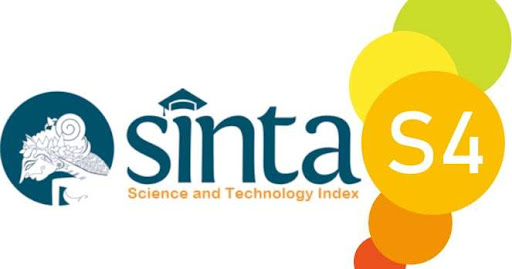The Cruciality of Self-Determination on James Baldwin’s Bruce and the Spider
DOI:
https://doi.org/10.36733/sphota.v16i2.8583Keywords:
Bruce and the Spider, James Baldwin, Self-DeterminationAbstract
This paper exposes the crucial points of self-determination in the flash fiction of James Baldwin entitled Bruce and the Spider. The short story is a narrative that describes a brief moment in the life of the main character, Bruce, a Scottish king who was defeated many times by the King of England. When he saw a spider weaving its web in the corner of his retreat, this moment became symbolic of Bruce's emotional journey and self-determination within himself and the kingdom of Scotland. In this flash fiction, it is witnessed how Bruce struggles amid his repeated failures. Using qualitative research method, this article illustrates small changes in perception and courage and asks questions about how simple moments can have a profound impact on a person's life. This writing is supported by Self-Determination Theory as conceptualized by Richard M. Ryan and Edward L. Deci. Through explorative approach, the analysis includes how self-determination accompanies the reflections of the meanings behind simple actions and the importance of facing failure. In conclusion, it is self-determination through self-confidence, self-understanding, and self-reliance that directs King Bruce to defeat his despair, get back up, and beat back the English soldiers.
References
Ahmadi, A., Noetel, M., Parker, P., Ryan, R. M., Ntoumanis, N., Reeve, J., ... &
Lonsdale, C. (2023). A classification system for teachers’ motivational behaviors recommended in self-determination theory interventions. Journal of Educational Psychology. https://doi.org/10.1037/edu0000783.
Allo, M. D. & Priawan, A. (2019), Students’ self-confidence in speaking skill, Jurnal
Studi Guru dan Pembelajaran, 2(1), pp. 11–14.
https://doi.org/10.30605/jsgp.2.1.2019.1263.
Annamalai, N., Eltahir, M. E., Zyoud, S. H., Soundrarajan, D., Zakarneh, B., & Al
Salhi, N. R. (2023). Exploring English language learning via Chatbot: A case study from a self determination theory perspective. Computers and Education: Artificial Intelligence, 5, 100148. https://doi.org/10.1016/j.caeai.2023.100148 .
Annasai, A. A., Putri, D. A., Pasopati, R. U., (2024), Theory of Patience as Reflected
on Ralph Ellison's The King of Bingo Game, Intertwine: Journal of English Language, Literary, and Cultural Studies, 1 (2), pp. 61-72.
Baldwin, J., (2015), Bruce and the Spider, New York: Media Galaxy.
Deci, E. L. & Ryan, R. M. (2012), Self-determination theory, Handbook of Theories
of Social Psychology: Volume 1, pp. 416–437.
Garnett, M., (2011), Taking the self out of self-rule, Ethical Theory and Moral
Practice, 16(1), pp. 21–33. https://doi.org/10.1007/s10677-011-9316-5.
Hong, P. Y., Choi, S., Key, W. (2018), Psychological self-sufficiency: A bottom-up
theory of change in workforce development, Social Work Research, 42(1), pp. 22–32. https://doi.org/10.3998/sdi.2811
Ingerslev, L. R., (2020), On the role of habit for self-understanding. Phenom Cogn
Sci, 19, pp. 481–497. https://doi.org/10.1007/s11097-018-9605-8
Kim, I., & Ahn, J. (2021). The Effect of Changes in Physical Self-Concept through
Participation in Exercise on Changes in Self-Esteem and Mental Well-Being. International journal of environmental research and public health, 18(10), 5224. https://doi.org/10.3390/ijerph18105224
Klussman, K., Curtin, N., Langer, J., Nichols, A. L. (2022). The Importance of
Awareness, Acceptance, and Alignment With the Self: A Framework for Understanding Self-Connection. Europe's journal of psychology, 18(1), 120–131. https://doi.org/10.5964/ejop.3707.
Martin, J. J. (2017), Self-determination theory, Oxford Scholarship Online [Preprint].
Mobius, M., (2022) Managing self-confidence: Theory and experimental evidence,
Management Science, 68(11), pp. 7793–7817. https://doi.org/10.1287/mnsc.2021.4294.
Nath, A. & Bhuvan, H. (2023), Self-reliance therapy: Reflections and a New Model,
The Archives of Psychiatry, 1(1), pp. 29–38. https://doi.org/10.33696/Psychiatry.1.004
Orth, U., & Robins, R. W. (2022). Is high self-esteem beneficial? Revisiting a classic
question. The American psychologist, 77(1), 5–17. https://doi.org/10.1037/amp0000922.
Postolati, E. (2018), Theoretical approaches to investigate self-understanding:
Literature review, Open Journal for Psychological Research, 2(1), pp. 27–38. https://doi.org/10.32591/coas.ojpr.0201.04027p.
Rosli, M. S., & Saleh, N. S. (2023). Technology enhanced learning acceptance
among university students during Covid-19: Integrating the full spectrum of Self-Determination Theory and self-efficacy into the Technology Acceptance Model. Current Psychology, 42(21), 18212-18231. https://doi.org/10.1007/s12144-022-02996-1.
Ryan, R. M. & Deci, E. L. (2000), Self-determination theory and the facilitation of
intrinsic motivation, social development, and well-being, American Psychologist, 55(1), pp. 68–78. https://doi.org/10.1037//0003-066x.55.1.68
Sarmi, N. N., Kirana, K. S., Wijaya, K., Pasopati, R. U., (2023), Authenticity and Its
Discontent as Reflected on Heinrich Böll’s The Laugher, LET: Linguistics, Literature and English Teaching Journal, 13 (1), pp. 68-84. https://doi.org/10.18592/let.v13i1.8523.
Schaumberg, R. L. & Flynn, F. J. (2017), Self-reliance: A gender perspective on its
relationship to communality and Leadership Evaluations, Academy of Management Journal, 60(5), pp. 1859–1881. https://doi.org/10.5465/amj.2015.0018.
Wikaningtyas, S. U., Tjahjono, H. K., & Suprihanto, J. (2023). Turnover Intention
Model: Self-Determination Theory Approach. Quality-Access to Success, 24(194). https://doi.org/10.47750/QAS/24.194.20.
Wirnoto, Y. A. A., Surensa, K., Wijaya, S. M., Sarmi, N. N, Pasopati, R. U., (2023),
Succorance in Promotion of Psychological Well-Being, Proceeding of International Seminar Enrichment of Career by Knowledge of Language and Literature, 11 (1), pp. 210-224.
Xu, X., Han, W., Liu, Q. (2023). Peer pressure and adolescent mobile social media
addiction: Moderation analysis of self-esteem and self-concept clarity. Frontiers in public health, 11, 1115661. https://doi.org/10.3389/fpubh.2023.1115661.













